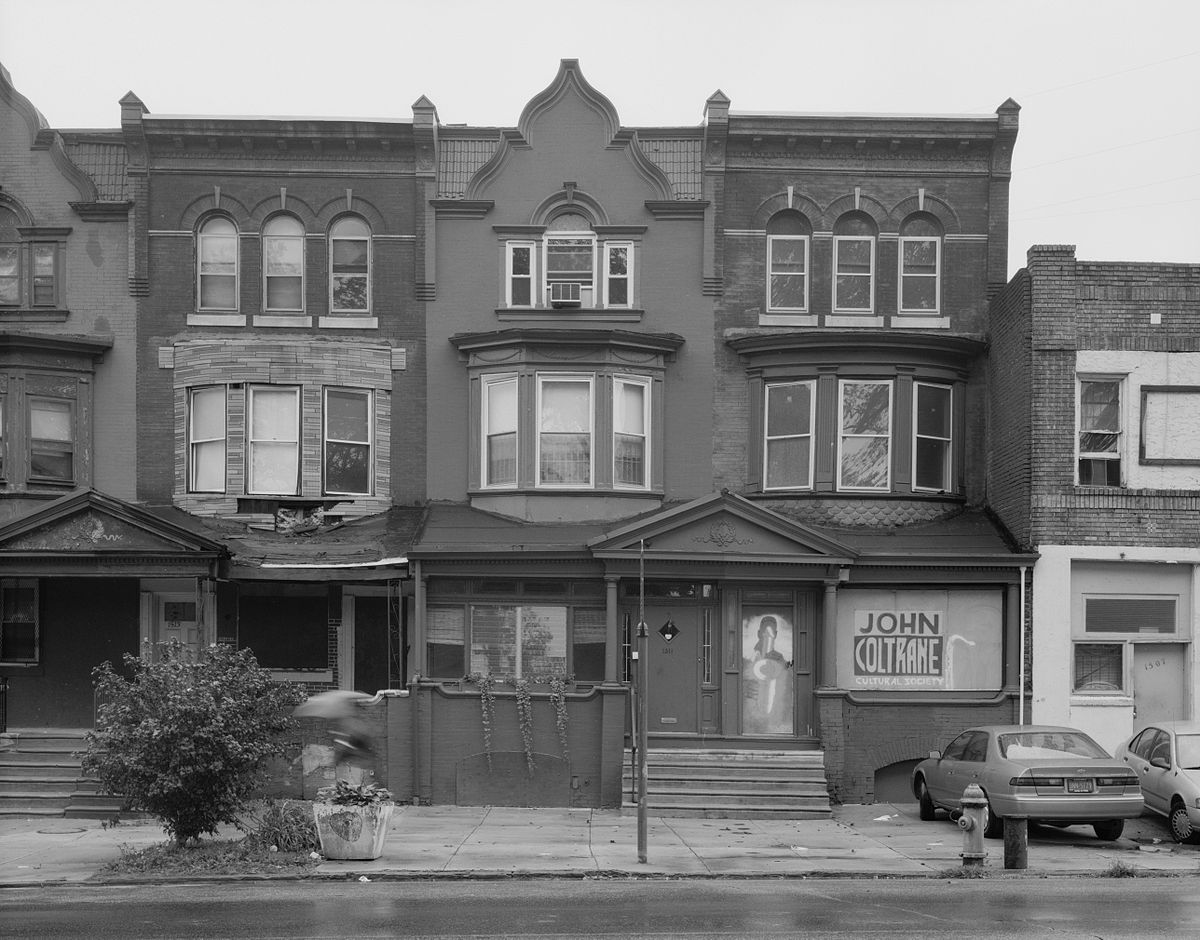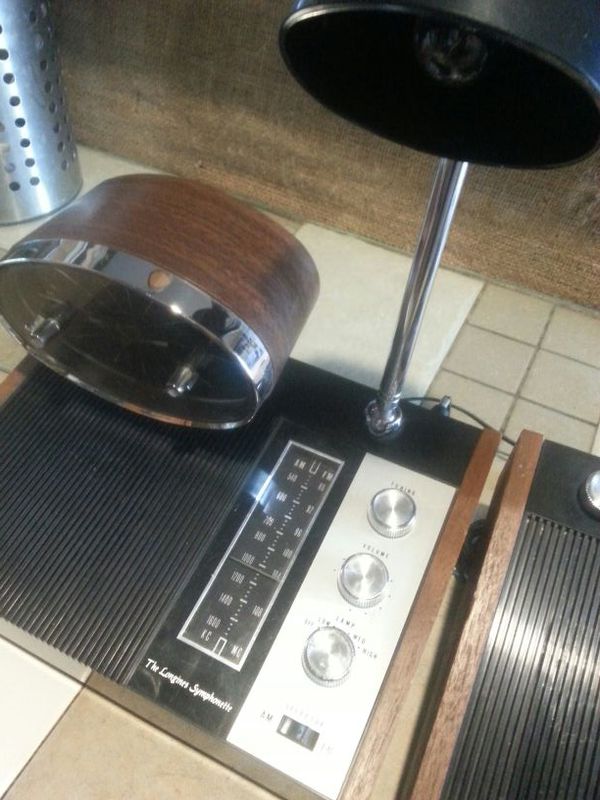Robert S. Caplan as a young executive
John Coltrane's house looks a lot like my dad's old home
As is the story for many of these Jewish-American enclaves, Strawberry Mansion's quasi-Utopian Jewsih era lasted only until the early '50s, which is when the first African-American families began to move into the area. Shamefully, this influx of new residents engendered the mass exodus of Jewish families to the suburbs. This included most of my father's childhood friends, some of whom literally moved out overnight so as not to tip off other neighbors of their departure and the sale of their homes to the influx of new residents.
Every transitional neighborhood has its hold-outs, and my father's parents, Harry and Molly, were among them. The changing demographic of the area was of no concern to them, and, as much as I'd like to say that this was due to their advanced unbiased attitude towards race relations, the reality was more likely due to their extremely financially conservative nature. Simply put, they owned their house, and they weren't going to move anywhere until it could be done without out a shadow of monetary risk.
This obviously had an impact on my dad. Being on the smaller side, my bespectacled father was essentially a Jewish Buddy Holly. Also, he was one of only a handful of white kids remaining at his elementary school. He was an easy target for anyone larger than he, and, well, that meant virtually everyone.
Above: Not my dad. Below: Not Buddy Holly
Except he wasn't an easy target. His father, my grandfather, who definitely had a untold wealth of amazing stories to tell, was (among other things) a prizefighter and a Merchant Marine who grew up scrapping for a corner to sell newspapers on the mean streets of old Baltimore. His cauliflower ears and crooked nose belied a violent and checkered past. The man I called Zayda was always exceptionally kind and gentle with me, but he apparently gave my dad more than a few pointers about the fine art of self defense.
Add the simmering youthful anger of poverty to this street-fighting knowledge, and you'll find the result is a feisty, tough little Jew living in a fairly hostile environment. As a result, it's probably not surprising to learn that my dad fought a lot. It became such a problem that the principal of his school, Fitzsimmons Elementary, allowed that handful of white students to leave school about 10 minutes earlier than the rest of the student body in the hopes that this head start would stave off some of the inevitable fights occurring at dismissal times. There were still a lot of fights, and my dad took and gave his share, if not more, of the beatings.
Flashing forward 40-something years, my dad became successful as a banker. He was married to my mom, and I was, with some notable exceptions, a pretty good kid. We lived in a nice, almost-suburb called East Oak Lane. It was an almost-unknown neighborhood full of big single homes and friendly neighbors. He wore a suit to work every day. My mom was a social worker. They both had cars, Ends were met. Things were generally pretty good. However, you can take the kid out of Strawberry Mansion, but you can't take the Strawberry Mansion out of the kid. Scratch that bank executive, and you'd find a very tough young hoodrat not far beneath the surface. His youthful anger was never very far away. I was never afraid of him, but even as a kid, I knew my dad had access to an anger I would never truly understand.
Case in point: My dad had this clock radio. It was a funky '60s thing with a little lamp on top. It sat on his bedside table, and it woke him every work day with the news and weather. I believe it was a Best Man gift from a friend's wedding.
Late one night in the '80s, my dad apparently had a dream about fighting, and, in his sleep, he turned to his right and beat the living hell out of that clock radio. He shattered it with his bare hands, waking up to shards of plastic strewn around the bed. My mom's joke at the was that she was glad he swung to the right and not the left, where she was sleeping. The clock radio was demolished for the most part, but, invoking the spirit of his unfailingly frugal mom, he tried to piece the ridiculously damaged electronic device back into shape using the repair tools he knew best.... rubber bands. You can probably imagine how this looked.
We eventually managed to get rid of this wreck of a timepiece, but I'll never forget the tale of the clobbered clock.




